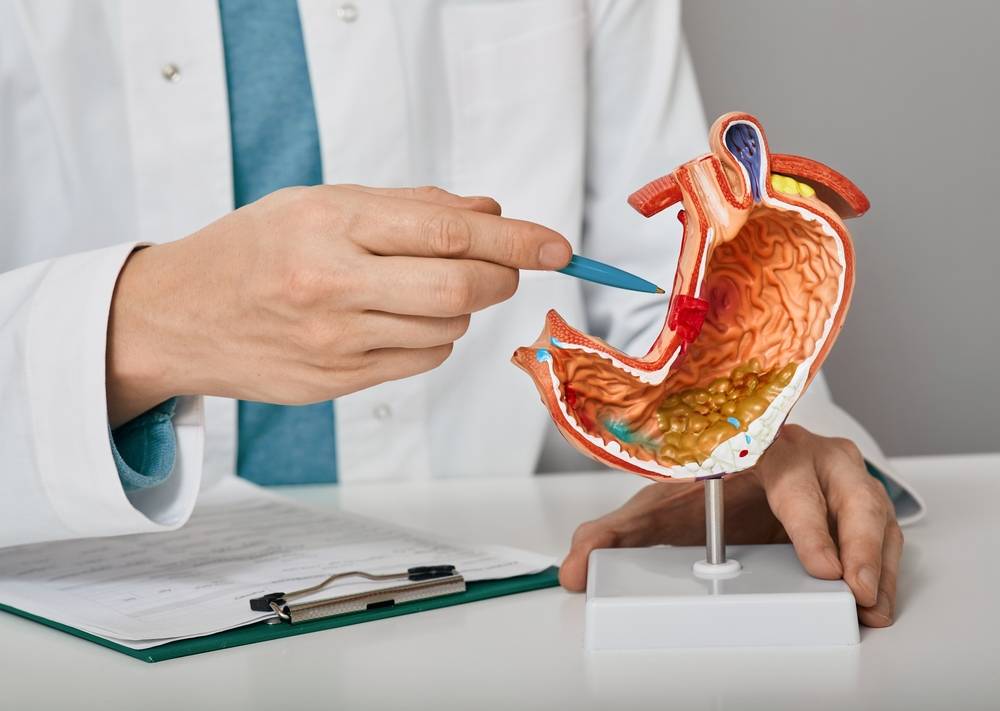It’s November – the Stomach Cancer Awareness Month!
If you enjoy processed meats like sausages, ham, or pickled vegetables, it might be time to reconsider how often you indulge. What you eat can significantly impact your stomach cancer risk.
The saying “you are what you eat” is relatively true when it comes to stomach cancer. What you opt to put on your plate plays a role, in addition to other risk factors.
What is stomach cancer?
Stomach cancer or gastric cancer is one of the common malignancies, ranking fifth in the world. It is highly prevalent in Asian countries, particularly in China, Japan and South Korea.
Stomach cancer develops when abnormal cells proliferate rapidly in the stomach lining. As the cancer advances and is left untreated, it can grow deeper into the lining to form tumours and may spread to neighboring organs like liver and pancreas.
Here, we shall explore the facts to break some common myths about stomach cancer!
Myth #1: Stomach cancer only affects males and older people.
Though stomach cancer often affects adults over 50, younger individuals can be at risk as well.
Besides, being a male also adds more risk to getting stomach cancer as compared to female. For instance, gastric cancer is the 7th and 9th most common cancer among men and women in Singapore, respectively. But this does not mean women do not get it.
While age and gender are non-modifiable risks, other factors including dietary habits and lifestyle can have greater influence across all age groups and genders.
Myth #2: I don’t feel any pain. It is not cancer.
Stomach cancer is often called a “silent” disease because it tends to progress without prominent symptoms at the earlier stage.
Sometimes, early symptoms such as indigestion or mild stomach discomfort, are easily mistaken as other gastrointestinal disorders such as GERD (gastroesophageal reflux disease) or gastritis.
As the cancer advances, more noticeable and severe symptoms may appear:
- Pain in the stomach or abdomen
- Feeling bloated after meals
- Heartburn or acid reflux
- Nausea and vomiting
- Loss of appetite
- Unexplained and unintended weight loss
- Feeling weak and fatigue
- Sticky and blackish stool (this is a sign of stomach bleeding)
- Jaundice (yellowing of the skin and white portion of the eyes)
- Accumulation of fluid in the abdomen
Therefore, always see a doctor if you have any prolonged abdominal discomfort.
Myth #3: Only smokers are at risk of stomach cancer.
Smoking raises the risk of many cancers, including stomach cancer. However, non-smokers can also develop this cancer due to other risk factors.
Typical risk factors of stomach cancer are:
- Family history of gastric cancer
- Chronic gastritis (a condition with inflammation in the stomach lining)
- Diet high in salt, smoked and processed foods
- Diet low in fruits and vegetables
- History of Helicobacter pylori (H. pylori) bacterium or Epstein-Barr virus infection
- History of stomach polyps or ulcers
- High alcohol intake

Myth #4: I am not at risk because no one in my family has stomach cancer.
While genetics and family history may elevate risks of stomach cancer, one should not completely rule out the possibility just because gastric cancer did not run in the family’s history.
The causes of stomach cancer are multifactorial, ranging from unhealthy diet to prior history of H. pylori infections.
Myth #5: Spicy food causes stomach cancer.
With the rising popularity of the tongue-numbing mala, it has become a very common food option for those who favour spicy food.
Capsaicin, a compound in spicy foods like peppers and chilies, is often thought to increase stomach cancer risk by irritating the stomach lining. However, there is no conclusive evidence linking spicy foods to stomach cancer. Controversially, capsaicin in moderation may even have anticancer properties.
Although eating spicy food alone is not the sole cause of stomach cancer, the key is to focus on a balanced diet and taking spicy food in moderation for a good overall digestive health.
Myth #6: All stomach cancers are the same.
Stomach cancer is not a single disease; it includes various types based on where cancer originates in the stomach.
Adenocarcinoma
This stomach cancer subtype starts in the mucus-producing cells. It is the most common type of stomach cancer.
Gastrointestinal Stromal Tumours (GIST)
These tumours are a soft tissue sarcoma (a type of cancer involving soft connective tissue in the body) that starts in the special nerve cells found in the wall of the stomach and other digestive organs.
Carcinoid tumours
These are the cancers that start in the neuroendocrine cells. Neuroendocrine cells are found in various places in the body, executing nerve cell functions and making hormones.
Lymphoma
This cancer affects the immune system cells called lymphocytes. Lymphoma can start in the stomach if the body sends the lymphocytes to the stomach to fight off an infection.
By assessing the stomach cancer’s subtype, gastroenterologists and oncologists are able to tailored treatment for patients.
Myth #7: Stomach cancer is a death sentence.
Stomach cancer is not always a death sentence. Early detection and appropriate treatment significantly improve survival rates. Cancer staging helps doctors determine the best treatment options for each patient.
The stages of the stomach cancer aid determine the treatments such as:
- Surgery
Surgery removes the tumour or affected parts of the stomach.
Common surgical interventions include endoscopic mucosal resection, a minimally invasive procedure to remove superficial cancerous cells on the stomach lining.
Gastrectomy is another surgery that removes the stomach partially or completely, depending on the severity of the cancer.
- Chemotherapy
Given orally or via injections, chemotherapy drugs stop the growing cancerous cells.
- Radiotherapy
By using a machine to deliver radiation to the affected body part, the high-energy radiation beam targets the cancer cells.
- Targeted therapy
Small-molecule drugs or monoclonal antibodies (therapeutic antibodies designed and produced in lab) are given to the patient. These drugs are designed to identify and attack specific proteins controlling the cell growth and division.
- Immunotherapy
This treatment type supports the immune system in identifying and destroying abnormal cells. This helps to curb the growth of the cancer.
Myth #8: Stomach cancer cannot be prevented.
While no cancer is 100% preventable, many lifestyle changes can lsignificantly reduce the risk:
- Increase intake of fresh fruits and vegetables
- Reduce processed foods high in salt
- Stay physically active
- Maintain a healthy weight
- Treat underlying H.pylori infection
- Stop smoking
- Limit alcohol intake
- Attend regular health check-ups especially for individuals with family history
Myth #9: I am a vegan, so I will not get stomach cancer.

Studies showed plant-based diets can help to mitigate the risk of stomach cancer. For instance, fruits, vegetables, whole grains and legumes are rich with compounds that can help combat H. pylori infection, which is a known risk factor.
A study shared consumption of processed and red meat can also increase the risk of gastric cancer. This is due to the high levels of carcinogenic nitrates and nitrites used in the food processing. Furthermore, high temperatures can yield cancer-causing compounds that further exacerbate the cancer risks.
While adopting a vegetarian diet may not 100% guarantee that one will not get gastric cancer, but it may be able to alleviate the risks. If you are still keen to eat meat, choose leaner meat, fish and poultry.
Myth #10: Probiotics don’t work and cannot help to prevent stomach cancer.
Probiotics are beneficial living microorganisms that adds to the existing friendly population in your body. Studies highlight that probiotics can indirectly diminish the risk of stomach cancer by inhibiting H. pylori infection.
The common probiotics with inhibitory effects can include B. bifidum, L. acidophilus, L. rhamnosus and other strains. These probiotics can be taken orally in capsules, tablets or sachet forms.
Read also: The Truth About Probiotics: Separating Fact from Fiction
Taking Action Towards Good Stomach Health
As we shift our mindset from curative to preventive health, let’s make healthier choices everyday. Limiting processed foods, abstaining from smoking and alcohol, getting H. pylori infections, stomach ulcers and polyps treated, and taking initiative to go for regular health screenings, can help to keep stomach cancer at bay!
Have a pressing question for a doctor? Medical Channel Asia has launched a community forum page where you can get questions answered by a medical specialist. Visit the community forum here.

